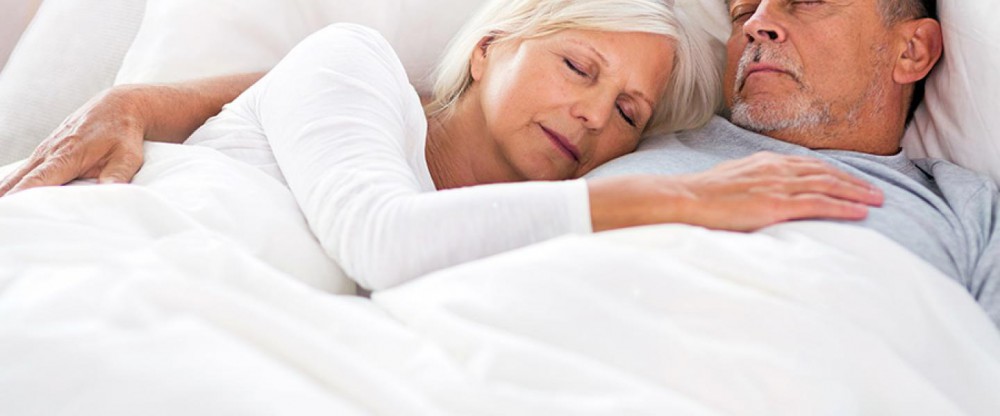Conditions That Affect Sleep as You Age
While many people think sleep needs decrease with age, recommended sleep duration actually remains fairly constant with only a minor drop in the upper-end of the spectrum. Still, for many adults age 65 and older, achieving the suggested seven to eight hours each night feels like a tall order. If a full night’s sleep is elusive, it could be due to one of these medical conditions.
Insomnia
Older adults wake up throughout the night more often than any other age group. These bouts of sleeplessness may be related to a change in circadian rhythm, which can cause people to feel sleepy in the early evening and alert in the early morning hours. Cutting back on caffeine consumption and nixing long daytime naps can help keep circadian rhythm on track.
Snoring and Sleep Apnea
Around 90 million Americans snore at night. While some occasional snoring may not be a major concern, loud snoring can be a sign of obstructive sleep apnea (OSA), a condition where breathing becomes temporarily impaired and blood pressure rises. Untreated OSA can significantly affect your sleep quality. A doctor can help determine if an individual has OSA and offer appropriate treatment options since OSA is a risk factor for heart disease, headaches, and depression.
Restless Legs Syndrome (RLS)
The twitching and jerking of limbs during the night is no recipe for sleep. One in 10 adults have Restless Legs Syndrome (RLS), and the chance of developing this disorder increases with age. Certain medications that older adults take can also make RLS worse, including those prescribed for high blood pressure, heart conditions and depression. To mitigate RLS, a doctor may suggest cutting back on caffeine and alcohol, taking an iron supplement, and creating a targeted exercise regimen.
Other Common Illnesses
Asthma, diabetes, and gastroesophageal reflux disease (GERD) can all negatively impact the ease of breathing, thereby making sleep more challenging for older adults. Diseases like Parkinson’s and multiple sclerosis may have an impact as well. However, healthy sleep habits can help mitigate these conditions’ negative impacts on sleep. These include maintaining a consistent sleep schedule, exercising regularly, and getting exposure to light early in the day to help reset your body’s clock.
Orexin receptor antagonists: A new class of sleeping pill Find out more about orexin, and a new type of sleep aid drug which may have fewer side effects.The term “anti-aging” may conjure up images of expensive wrinkle creams and nutritional supplements, but one of the most impactful ways to keep your mind and body young doesn’t cost a cent: Research suggests that a solid night’s sleep can go a long way to staving off the mental effects of getting older. Sleep benefits the mind in many ways....Though it may come as no surprise that people find it harder to fall asleep when they’re emotionally wound up,...Sleep problems like insomnia can be caused by many different factors, including chronic pain, acid reflux, and depression. But did...Sleep problems are common among kids who are anxious or who are making a transition to a new school. They...After safety and nutrition, how much sleep a child gets is uppermost in a parent’s mind. The amount your child...Some people use sleep hypnosis as a tool to help them fall asleep. In a nutshell, sleep hypnosis is a...As you scan the colorful boxes of sleep aids on the pharmacy shelf, it might seem easy to grab one...Whether you’re experiencing jet lag, shifting schedules at work, or adjusting to a new life routine, temporary use of over-the-counter...If you have medications in your medicine cabinet , it’s more than likely that at least one will list a...

Source: Internet
